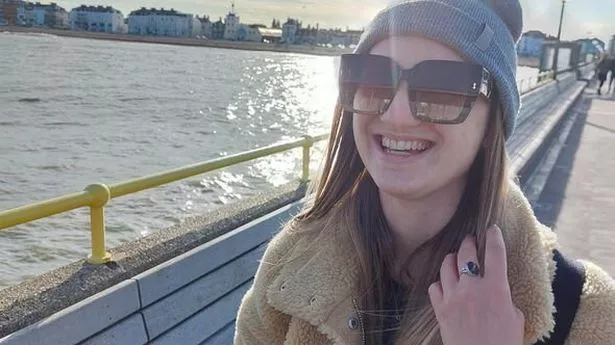Popping a pod into my Nespresso machine and indulging in a frothy coconut latte used to be one of the highlights of my day. Adding a splash of sugar-free vanilla syrup or half a teaspoon of brown sugar, I was all set to face the day head-on.
Since my teenage years, I've always kicked off the day with a coffee so when health reasons forced me to abandon my morning ritual, I was at a loss for how to cope. Switching to tea, which also packs a caffeine punch, wasn't an option so I had to confront one of my biggest fears: going cold turkey.
I never considered my daily morning coffee to be a particularly bad habit. In fact, consuming two to five cups of coffee a day has been associated with a reduced risk of type 2 diabetes, heart disease, Parkinson's and depression, according to Frank Hu, chair of the Department of Nutrition at Harvard TH Chan School of Public Health, reports the Express.
So, when I began experiencing withdrawal symptoms after missing my morning coffee for two days, I was taken aback. A throbbing headache and feeling unusually drowsy during the day were the main symptoms, along with increased irritability. A quick Google search told me all I needed to know: I was suffering from caffeine withdrawal.
At this point, I could see why it would be tempting to cave in and treat myself to a creamy latte but I was resolute in sticking to my goals. After a few days, the withdrawal symptoms subsided, and I began to feel more invigorated. Instead of clinging to the notion that I "needed" a coffee, I started my day with a large glass of water. Not only was this more refreshing in the hot weather, but it was also more hydrating.
However, the most significant difference I've noticed since quitting coffee is the improvement in my sleep quality. As a light sleeper, I've always struggled to drift off. While I suspected coffee might be a contributing factor, I often attributed it to other reasons - eating too late, not exercising enough, or using my phone before bed.
What I didn't realize was that excessive caffeine consumption can increase anxiety and disrupt sleep by blocking the effects of adenosine, a chemical that regulates sleep.
Now, I find myself falling asleep shortly after going to bed. Not only do I fall asleep faster, but my sleep is also deeper and more restful, allowing me to wake up earlier and be more productive. And I've discovered some delicious alternatives to coffee that might be even better than the real thing.
Coffee alternatives worth trying
Matcha Tea Powder
While it still contains caffeine, matcha, a traditional Japanese green tea that's ground into a fine powder, has less than your average cup of coffee and offers a more sustained energy boost as it's absorbed at a slower pace. Unlike coffee, I find this doesn't lead to a caffeine crash and hasn't negatively affected my health. I only indulge in it sporadically and always enjoy a small serving in a matcha latte. My go-to is Bird and Blend Tea Co. 's Pure Grade Matcha, which I pair with coconut milk and a hint of maple syrup.
Turmeric latte
Also known as 'golden milk', turmeric lattes boast a wealth of health benefits. Turmeric is anti-inflammatory, an antioxidant and can help enhance the quality of your sleep. My preferred choice is Naturya's Organic Turmeric Superblend, which you can pick up for £6.69 from Holland and Barrett.
Decaf coffee
Although decaffeinated coffee still contains a minuscule amount of caffeine, it's significantly less than a standard cup. Decaffeinated coffees have been given a bad name over time and often don't taste as good as the real deal. However, if you own a coffee machine, I'd strongly recommend Starbucks by Nespresso Decaf Espresso Coffee pods. Paired with frothy milk and half a teaspoon of brown sugar, you could almost fool yourself into thinking you're sipping on a regular coffee... almost.
Gingerbread chai tea
A friend introduced me to this tea and now I'm hooked. Another gem from Bird and Blend Tea Co, this tea can be savoured plain or with a splash of milk. I adore combining it with coconut milk and a splash of vanilla syrup for a spicy take on a pumpkin spice latte. Crafted with rooibos, cinnamon, and ginger, it's the ideal autumnal drink.
Peppermint tea
Whenever I'm feeling slightly off-colour, peppermint tea is always my first choice. This beverage can assist in digestion, alleviate tension headaches, and is packed with antioxidants. My top pick is Teapigs Peppermint Tea, available at Sainsbury's for £4.75.
